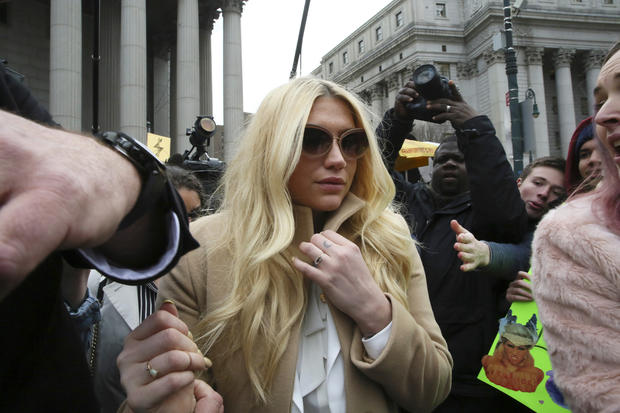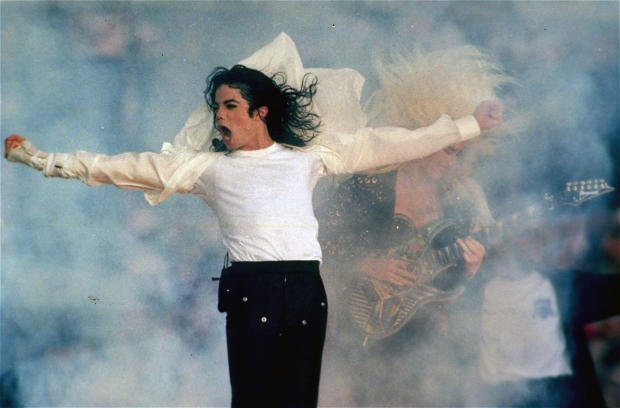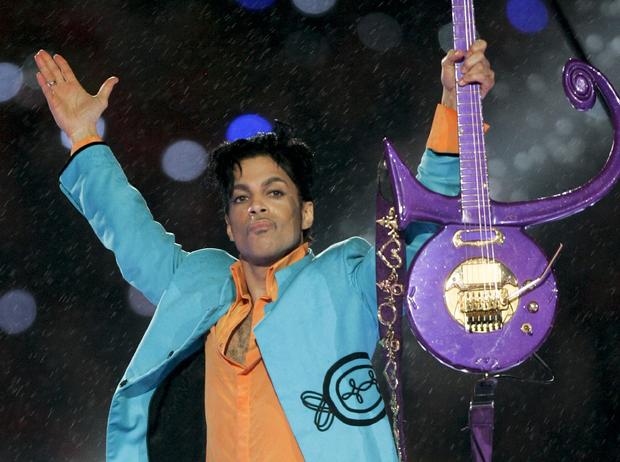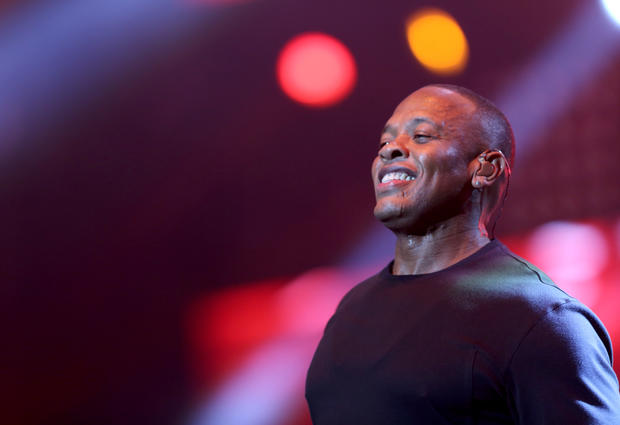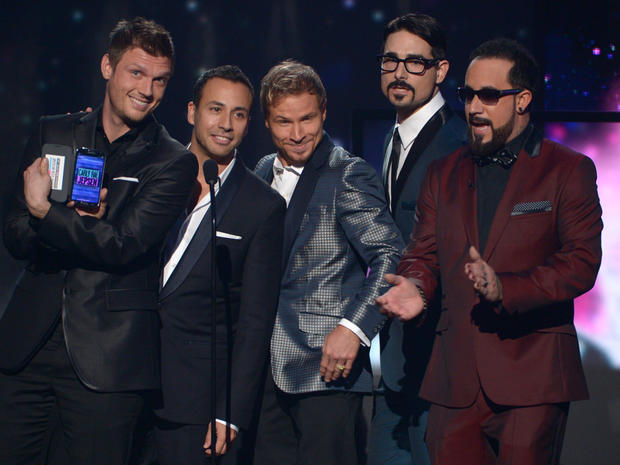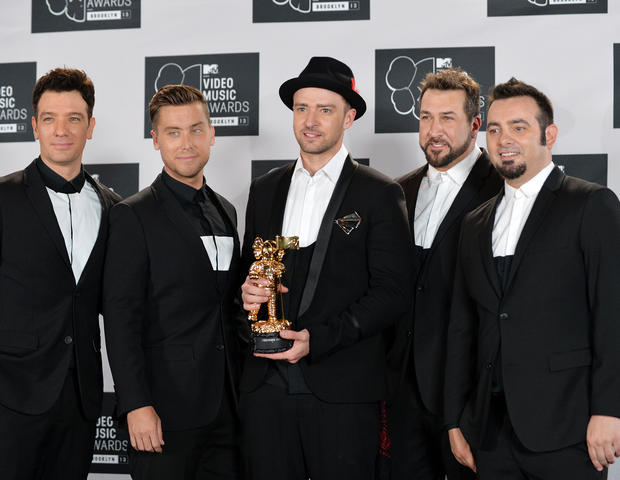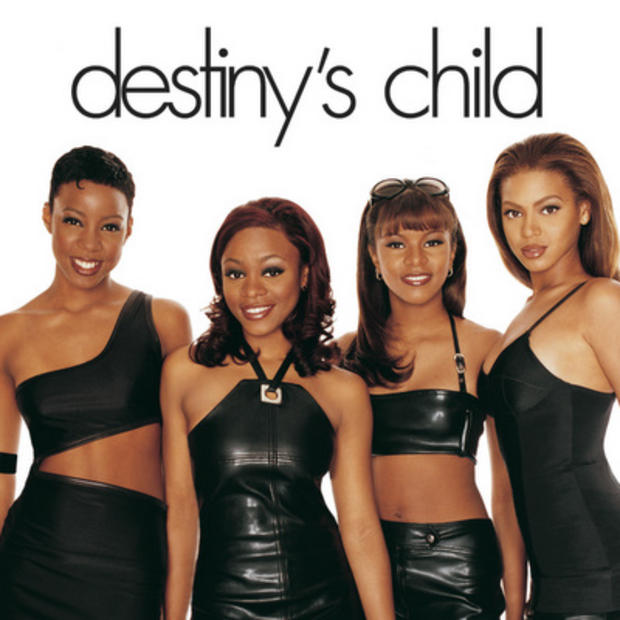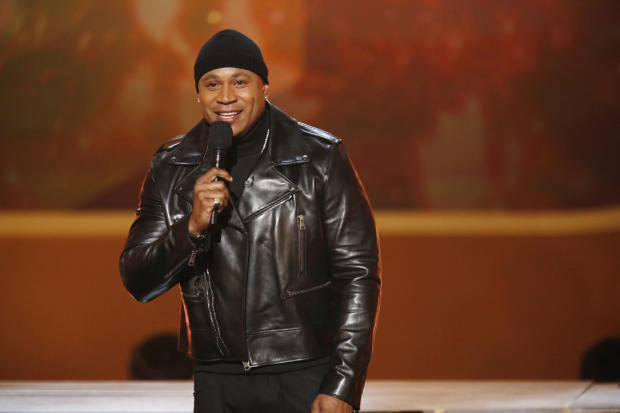Musicians v. record labels: 14 famous feuds
Kesha made headlines when she lost a preliminary injunction to break her contract with Sony. The pop star made a request to leave the company after alleging that her producer, Dr. Luke, sexually assaulted her and abused her.
Kesha is not the only musician who has had an epic contract dispute. Click through to see more musicians who have gone through legal battles with their labels.
Johnny Cash
In spite of a 26-year-long business relationship, Columbia Records said goodbye to Johnny Cash in 1986 when they decided that the country legend was not bringing in enough money for the label.
John Fogerty
John Fogerty talked about his problems with his former record label Fantasy Records. The company sued Fogerty for plagiarism, claiming that his song "Old Man Down the Road" was simply his old Creedence Clearwater Revival song "Run Through the Jungle" with a new title.
"In 1988 I had to go through a plagiarism trial where I was sued for sounding like myself, and people tell me this was unprecedented," he told the Guardian in 2000. "I spent more than three years trying to resolve these issues, but sadly it didn't work."
Fogerty won the case but had to endure more legal hoops to win back $1.35 million in costs.
Michael Jackson
Michael Jackson felt that Sony had not done enough to promote his 2001 album, "Invincible."
In 2002, he accused his record label of racism, saying, "The recording companies really, really do conspire against the artists -- they steal, they cheat, they do everything they can. [Especially] against the black artists."
Prince
Prince was very open about his dispute with Warner Bros. after he signed a $100 million contract with them in 1992. The singer wanted to be able to release more music whenever he wanted, and he also wanted to own the original master tapes for his albums.
The pop star appeared in public with "Slave" written across his face and changed his name to an unpronounceable symbol, which meant everyone called him The Artist Formerly Known as Prince. He eventually settled with Warner Bros. and released music on the Internet after he left in 1996.
The biggest surprise? In 2014, Prince re-signed with Warner Bros. to release a reissue of "Purple Rain" for its 30th anniversary.
Dr. Dre
Dr. Dre triumphed in his legal battle against Death Row Records in 2015 when a judge ruled that the label did not have the rights to sell his album "The Chronic" digitally. The judge ruled that Dre was owed far more money from online sales of the 1992 album and entitled him to receive 100 percent of proceeds of online sales.
Courtney Love
Vivendi Universal Music Group and Courtney Love reached a settlement after their lawsuits against each other in 2002. Universal sued Love in 2000 over five allegedly undelivered albums, and Love countersued, saying the label treated artists unfairly, claiming that the company made $40 million from album sales from her rock band Hole, while she and band members only collected $2 million in royalties.
As part of the settlement, Universal agreed to waive any rights to future recordings from Love and restore her ownership of unreleased Hole material.
In exchange, Love and the other members of the Cobain estate granted Universal permission to release new Nirvana packages, including a compilation album with a never-before-released track, a boxed set and a rarities album.
Backstreet Boys
In 2002, the Backstreet Boys sued the parent company of their record label Jive, Zomba Recording Corporation, asking for $75 million and release from their 1994 recording contract. The boy band claimed that Zomba refused to support them artistically via producers through the recording process because the label was too focused on Nick Carter's solo career. They also alleged that Zomba used the Backstreet Boys' website and mailing list to promote Carter. Pictures: AMAs red carpet
'N Sync
'NSYNC was in the middle of a messy legal dispute against BMG and Lou Pearlman after they left the label to join Jive. BMG and Pearlman sued the boy band for $150 million for breach of contract, while 'NSYNC alleged that Pearlman and his business holdings committed fraud, breach of contract and breach of fiduciary duty. The parties reached a settlement in 1999.
Dixie Chicks
The Dixie Chicks had an 11-month dispute with Sony that began in July 2001, during which they accused Sony of "systematic thievery" by underpaying $4 million in royalties owed the trio for their first two multi-platinum releases from Sony's Monument Records imprint.
The trio reconciled with their record label with a new contract that gave them a $20 million bonus.
Trent Reznor
Nine Inch Nails frontman Trent Reznor slammed his record label, Universal Music Group, in a website post in 2007. He wrote that Universal was exploiting customers, citing the retail markup in Australia.
"As the climate grows more and more desperate for record labels, their answer to their mostly self-inflicted wounds seems to be to screw the consumer over even more," Reznor wrote from his Australian tour. "The ABSURD retail pricing of 'Year Zero' in Australia. Shame on you, UMG [Universal Music Group]. 'Year Zero' is selling for $34.99 Australian dollars ($29.10 US). No wonder people steal music."
Destiny's Child
La Tavia Roberson and LeToya Luckett claimed they didn't know they were dropped from Destiny's Child until they saw the music video for "Say My Name" with two new members, Farrah Franklin (who later left) and Michelle Williams lip-syncing their parts. Ouch!
Luckett and Roberson sued Beyonce Knowles, Kelly Rowland, their manager and Knowles' father, Matthew, and the group's label, Sony Music, for breach of contract, defamation, libel and fraud. The parties reached a settlement in 2002.
LL Cool J
LL Cool J was one of Def Jam's original stars, but the rapper has been open about his problems with the record label.
He believed Def Jam did not promote his 2006 LP "Todd Smith" properly and claimed that the label called radio stations telling them not to play his songs. Jay Z, who was label president at the time, denied the allegations.
Metallica
It wasn't against a record label, but Metallica won big when it sued Napster in a 2000 case that changed the music industry. The band sued the music sharing service for copyright infringement and racketeering. The judge ruled in favor of Metallica and ordered Napster to be shut down.
By Andrea Park
